MOVE TO GLOBAL WAR: J, G, & I
1/70
There's no tags or description
Looks like no tags are added yet.
Name | Mastery | Learn | Test | Matching | Spaced | Call with Kai |
|---|
No analytics yet
Send a link to your students to track their progress
71 Terms
Battle for the Grain (1925)
Mussolini attempted to make Italy self-sufficient in wheat production. Increased grain production and decreased imports by 75%, but had many negative impacts in southern Italy where the soil was not suitable for wheat.
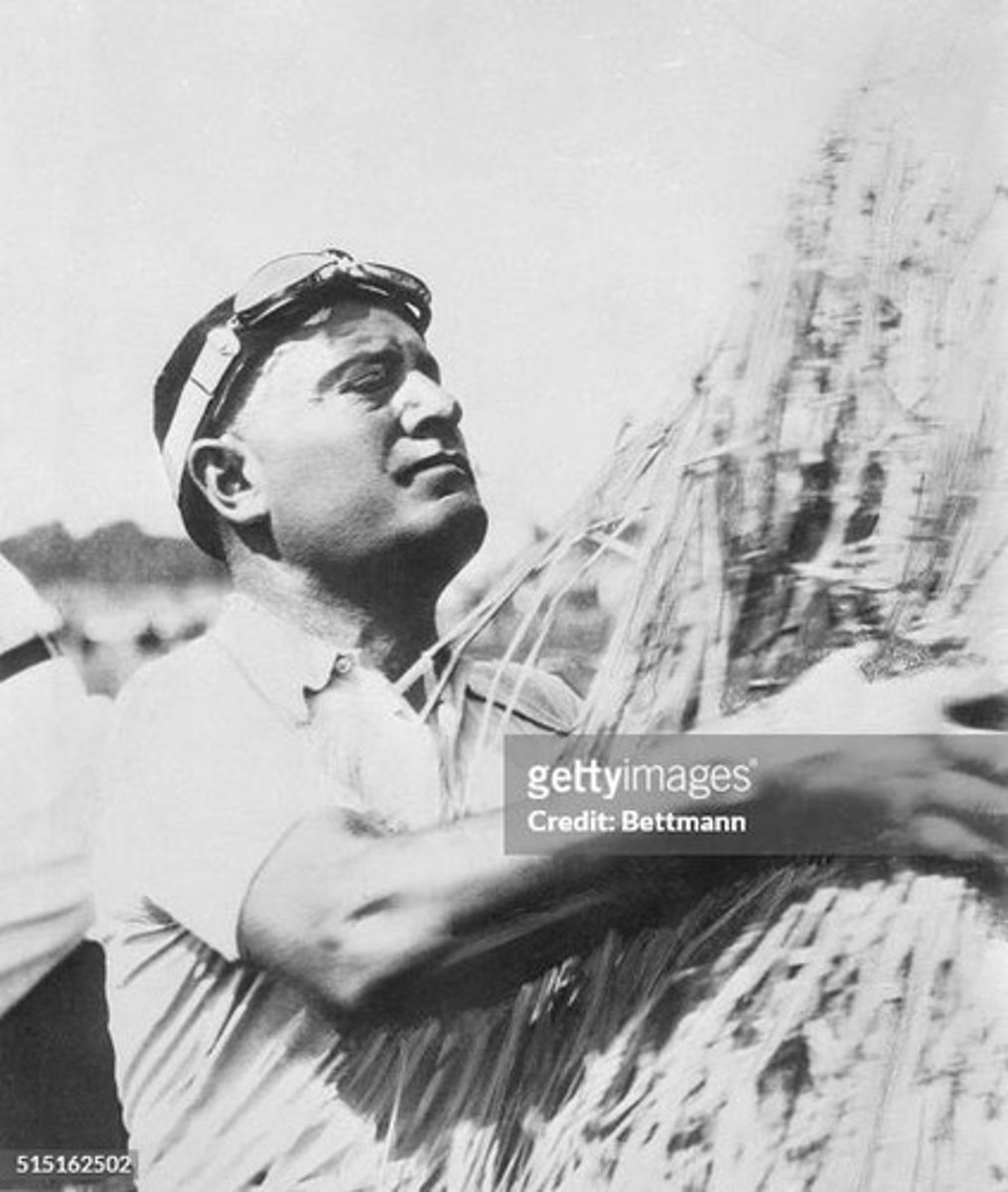
Battle for Lira (1926)
Campaign launched by Mussolini in 1926 that aimed at strengthening Italy's currency, the lira. Mussolini fixed the Lira at 90 lira per british pound. As a result, exports fell and prices for consumers rose.
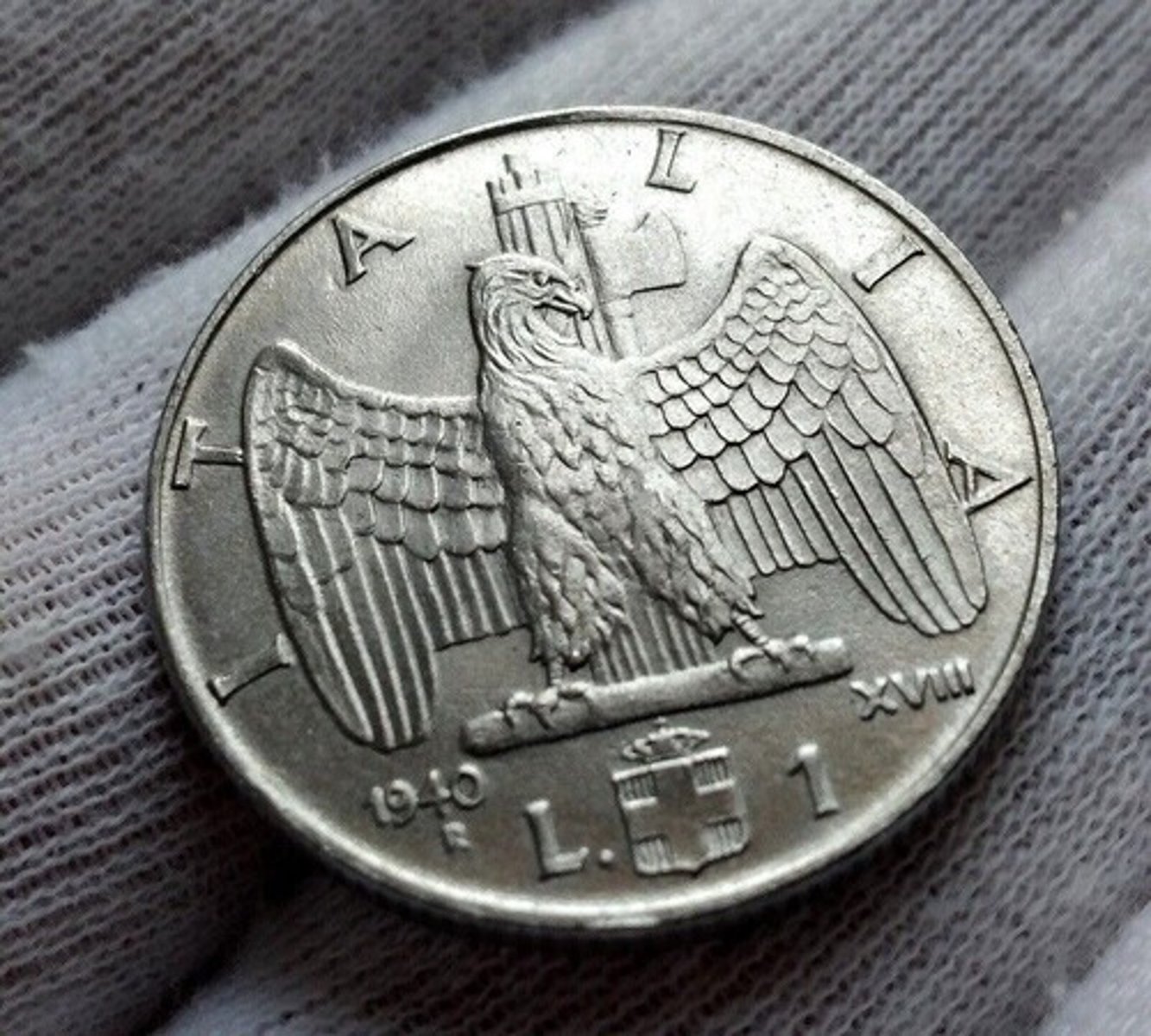
Battle for Births (1927)
Implemented to increase the Italian population from 40 million to 60 million by 1950. It offered loans to married couples and tax exemptions for men with children. It was largely unsuccessful at promoting new births.
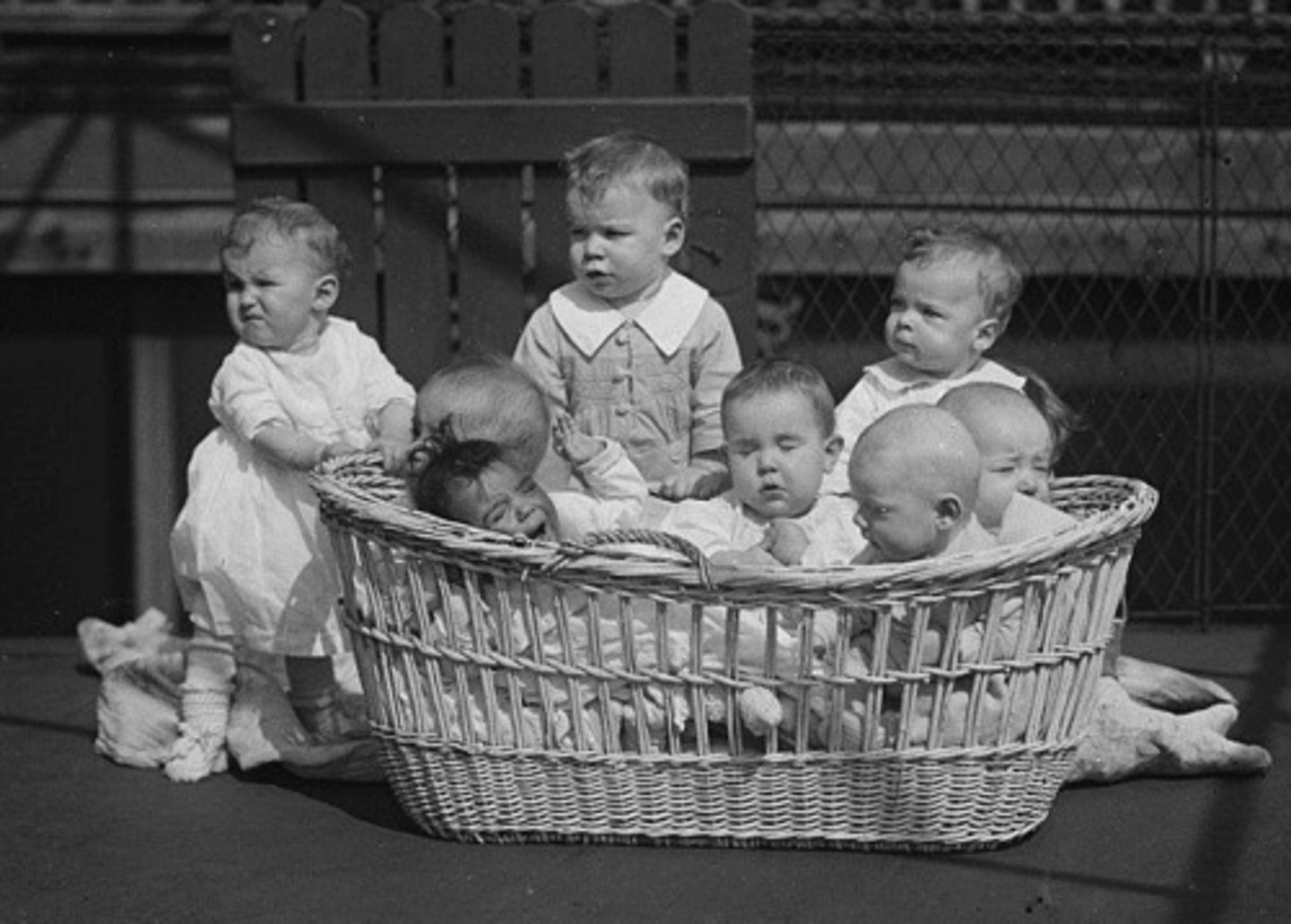
Munich Agreement (Sep 1938)
Pact between Germany, U.K, France, and Italy that allowed Germany to annex the Sudetenland in Czechoslovakia
Liquidation of Czechoslovakia (Mar 1939)
Germany sends troops into the rest of Czechoslovakia and does not receive any militaristic resistance
Polish Corridor / Danzig
Former German territory that connected Poland to the Baltic Sea which was desired by Hitler in March 1939
Pact of Steel (May 1939)
A military agreement between Germany and Italy in which they agreed to cooperate with each other against the Allied Powers
Molotov-Ribbentrop Pact (Aug 1939)
Non-aggression agreement between Germany and the USSR which covered the split of Poland between the two
Germany's Invasion of Poland (Sep 1939)
Attack by Hitler's government into neighboring country causing the start of WWII
Spartacist Uprising & Freikorps (1919-22)
The Spartacists, a group of communist workers who wanted the working classes to run the government, revolted against the Weimar Government. The Weimar employed the Freikorps, who were ex-soldiers who hated communists. Freikorps put down the rebellion.
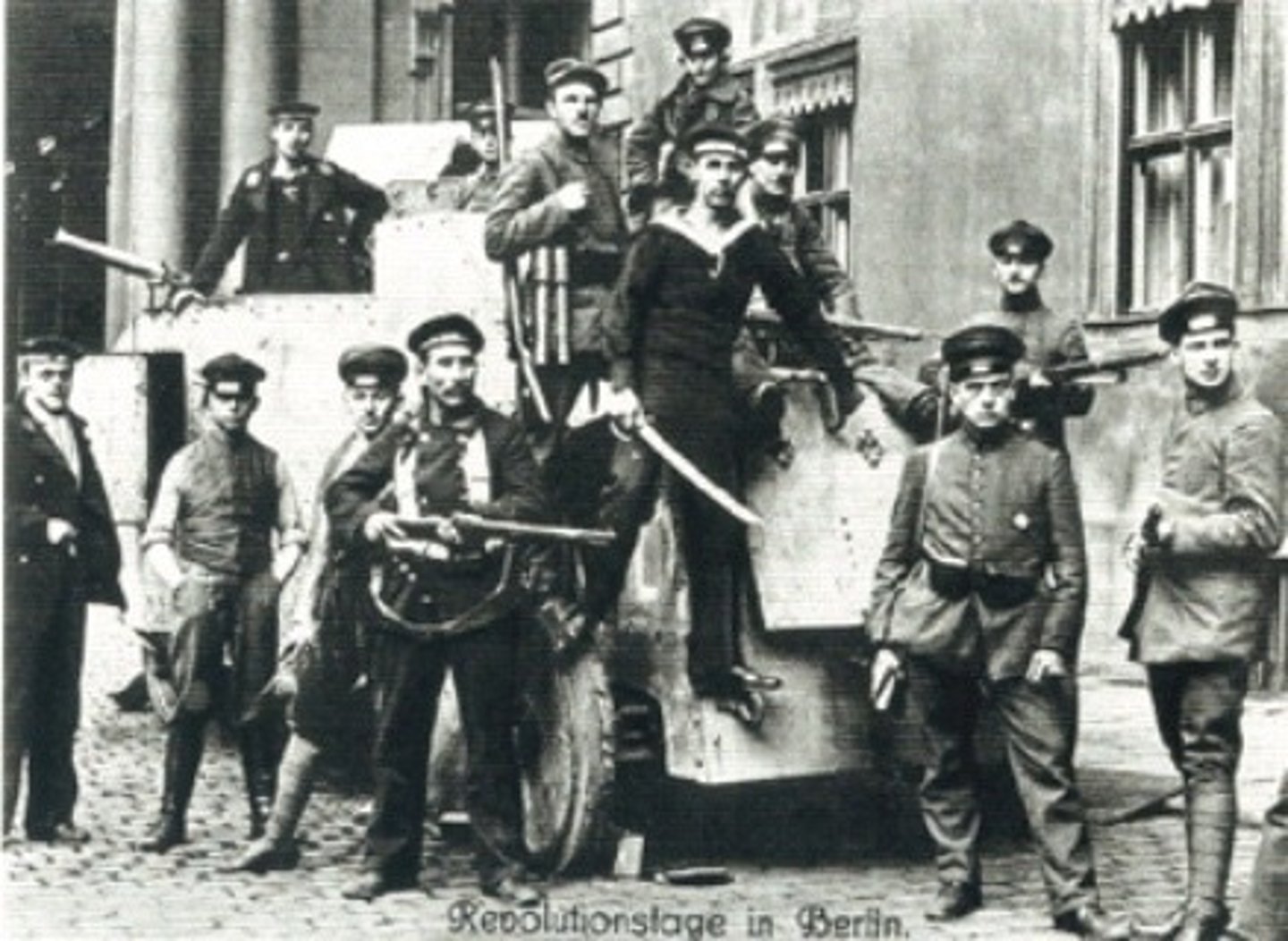
Sturmabteilung (SA)
"Storm Troopers" or "Brownshirts." Group of Nazi followers who intimidated the people of Germany into supporting Hitler. They protected party meetings, marched in Nazi rallies, and physically assaulted political opponents.
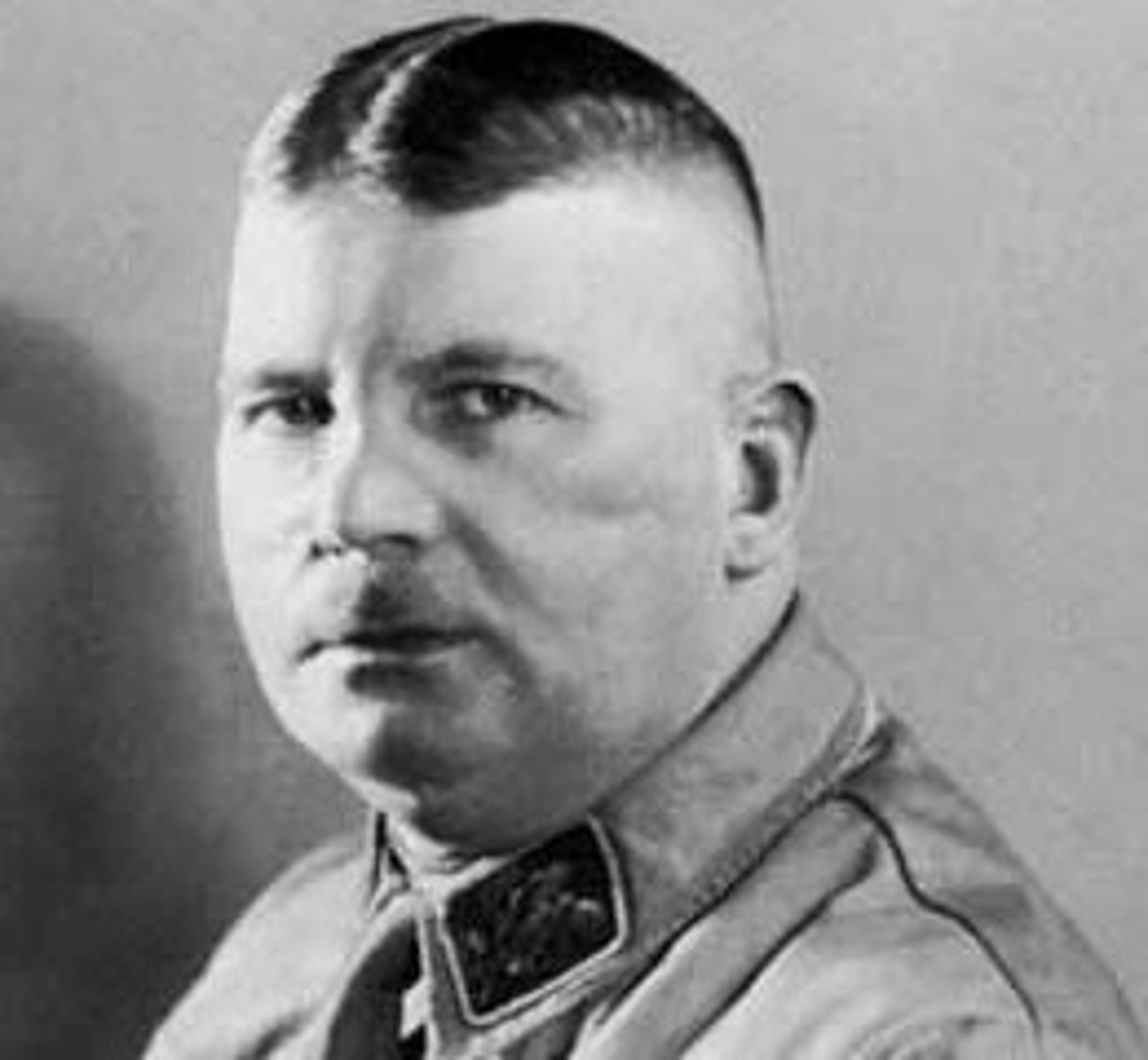
Munich / Beer Hall Putsch (November 1923)
Failed coup d'etat by Hitler on the government in Bavaria, Germany. Hitler was arrested and charged with treason, and wrote his book "Mein Kampf" while in jail. The incident brought immediate attention to Hitler, expanding his status in the German public.
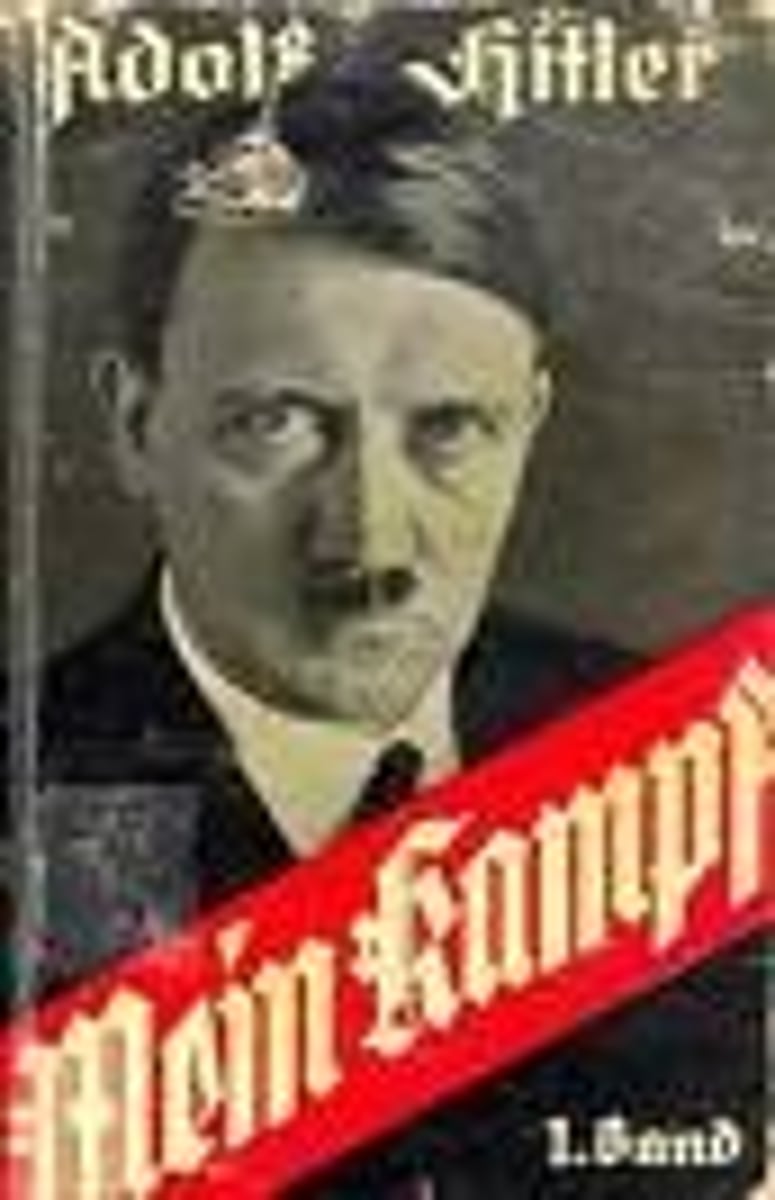
Italy enters WWII
Joined June 1940; Initially was too poor to fight but was able to gain money and power; joined against Germany because it was concerned over Germany becoming a superpower
Italy's Invasion of Albania
April 1939; Annexed Albania to gain more land after German invasion of Czechoslovakia
Haile Selassie's Speech to the League of Nations
1936; Emperor of Ethiopia went before LON to try to plea for help; said they were responsible for the fates of Ethiopian citizens who are dying because Italy declared war
Anti-Comintern Pact (November 1936)
Anti-Communist Pact between Germany and Japan. Other countries such as Italy, Spain, Hungart, etc joined this pact at a later time.
Anchluss (1938)
The result of Nazi Germany annexing Austra.
Sudeten Crisis (Spring 1938)
Germany invaded Czechoslovakia and German citzens inhabited the borders.
Remilitarization of the Rhineland
In March 1936, when German military forces entered the Rhineland, which directly contravened the Treaty of Versailles and the Locarno Treaties.
Spanish Civil War (1936-1939)
From 1936 to 1939, the Spanish Civil War was a war fought between the Nationalists and the Republicans which was caused by the revolt of the Republic government of Spain.
Rome-Berlin Axis
October 1936; close cooperation between Italy and Germany, and soon Japan; resulted from Hitler, who had supported Ethiopia and Italy, he overcame Mussolini's lingering doubts about the Nazis.
Treaty of London (1915)
A secret pact made between Italy and the Triple Entente, according to which Italy was to leave the Triple Alliance and join the Triple Entente, as well as declaring war on Germany and Austria-Hungary, for which it would receive some territory.
Fiume Crisis
In the aftermath of Paris Peace, when nationalists seized area in Adriatic and occupied it, claiming it as part of Italy.
March on Rome (1922)
Mussolini and army of fascists Black Shirts marched on Rome and demanded the resignation of the existing government. The king was compelled to place Mussolini as the dictator for a year, meaning he had achieved his high status and position "legally".
Corfu (1923)
Mussolini invaded Greece after murder of Italian General on Greek territory. League of Nations insists Italy evacuates and Greece pays reparations.
Assassination of Matteotti
June 10, 1934 Italian Socialist politician was stabbed to death in an automobile after speaking openly in Italian Parliament claiming Italian fascists committed fraud in 1924 Italian general election.
The OVRA
1926-27 Undercover police appointed by Mussolini to detect Anti-Fascism in Italy. Trial or exile in remote Mediterranean island as consequence.
Treaty of Versailles (1918)
The peace treaty at the end of World War I. Most of Germany's power was taken away
Disarmament COnference (1933)
a conference geared towards international arms limitation
Hitler left conference in 1933
November 1933- a plebiscite gave Hitler 95% approval over his actions
Non-Aggression Pact with Poland (January 1934)
Mutual military assistance with Poland and Germany
Attempted Coup in Austria (June 1934)
Failed coup where Austrian Nazis attempted to overthrow the Austrian Government.
Saar Plebiscite (1935)
Saar had been under French control since 1918 and now had the option to return to Germany. 91% of voters voted to return to Germany. An organized vote was done fairly through the League of Nations.
Luftwaffe and Herman Goring (1935)
Luftwaffe was German Air force and Herman Goring was Commander-in-Chief.
Locarno Treaties
7 agreements negotiated in Locarno, Switzerland by Germany, Belgium, France, Italy, and the UK. Guaranteed Germany's western frontier and promised Britain and Italy would stop any aggression from Germany on the frontier.
Instituto Mobilaire Italiano
Public bank set up to bail out failing firms and provide capital for new industrial investments in Italy to help recover from the Great Depression..
Instituto per la Ricostruzione Industriale
Italian public holding company established in 1933 by fascists to help banks and companies that went bankrupt from the Great Depression.
Stresa Conference/Stresa Front
Proposed measures to counter Hitler's open rearmament of Germany, which went against the Treaty of Versailles, but their decisions were never implemented.
Italian Invasion of Abyssinia (Ethiopia)
1935-1937, Italian forces invaded Abyssinia during which the Italian army used chemical weapons and won easily.
Wal Wal Oasis
Italian forces marched 50 miles into Ethiopia and clashed with Ethiopian troops.
Hoare-Laval Pact
Secret pact in 1935 between France and the UK to end the second Italio-Ethiopian War.
Hitler Becomes Chancellor (January 1933)
appointed by Hindenburg after getting 35% of vote in 1932 presidential election
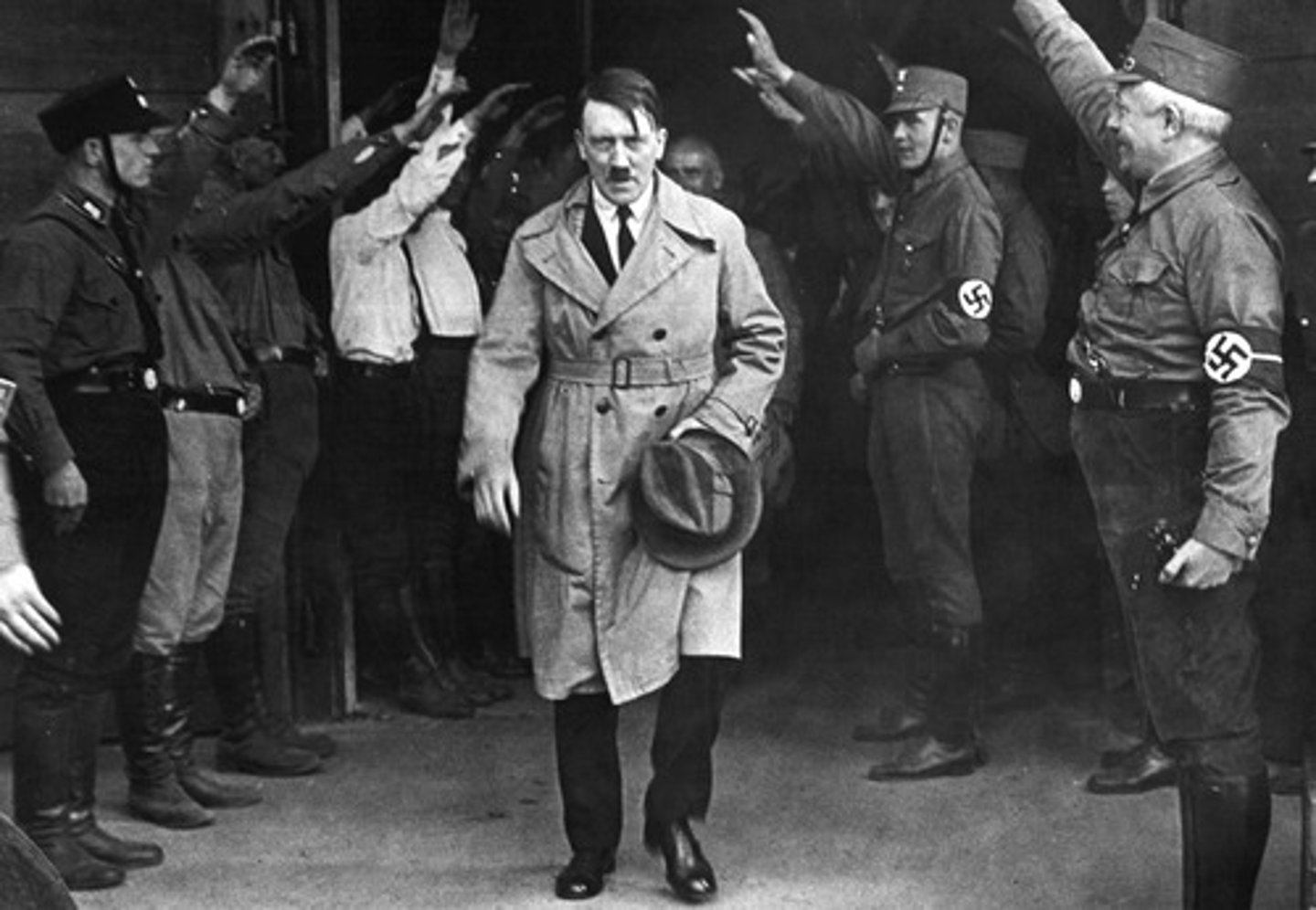
Reichstag Fire (February 1933)
arsonist attack on Reichstag Building (German Parliament); Hitler used to promote anti-communism + Reichstag Fire Decree limiting free speech
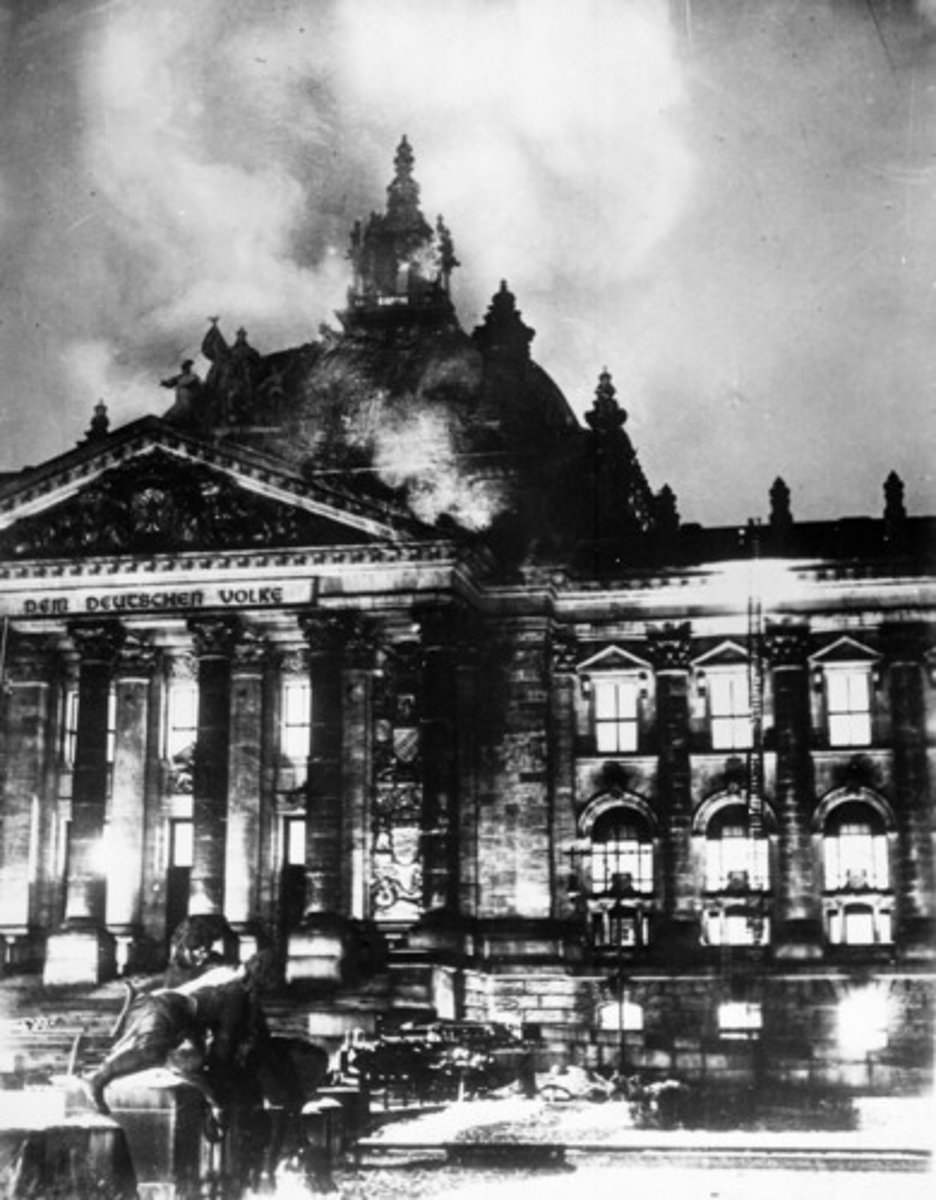
Night of the Long Knives (June 1934)
conflicts with leader of SA led Hitler to assassinate SA leaders and other opponents
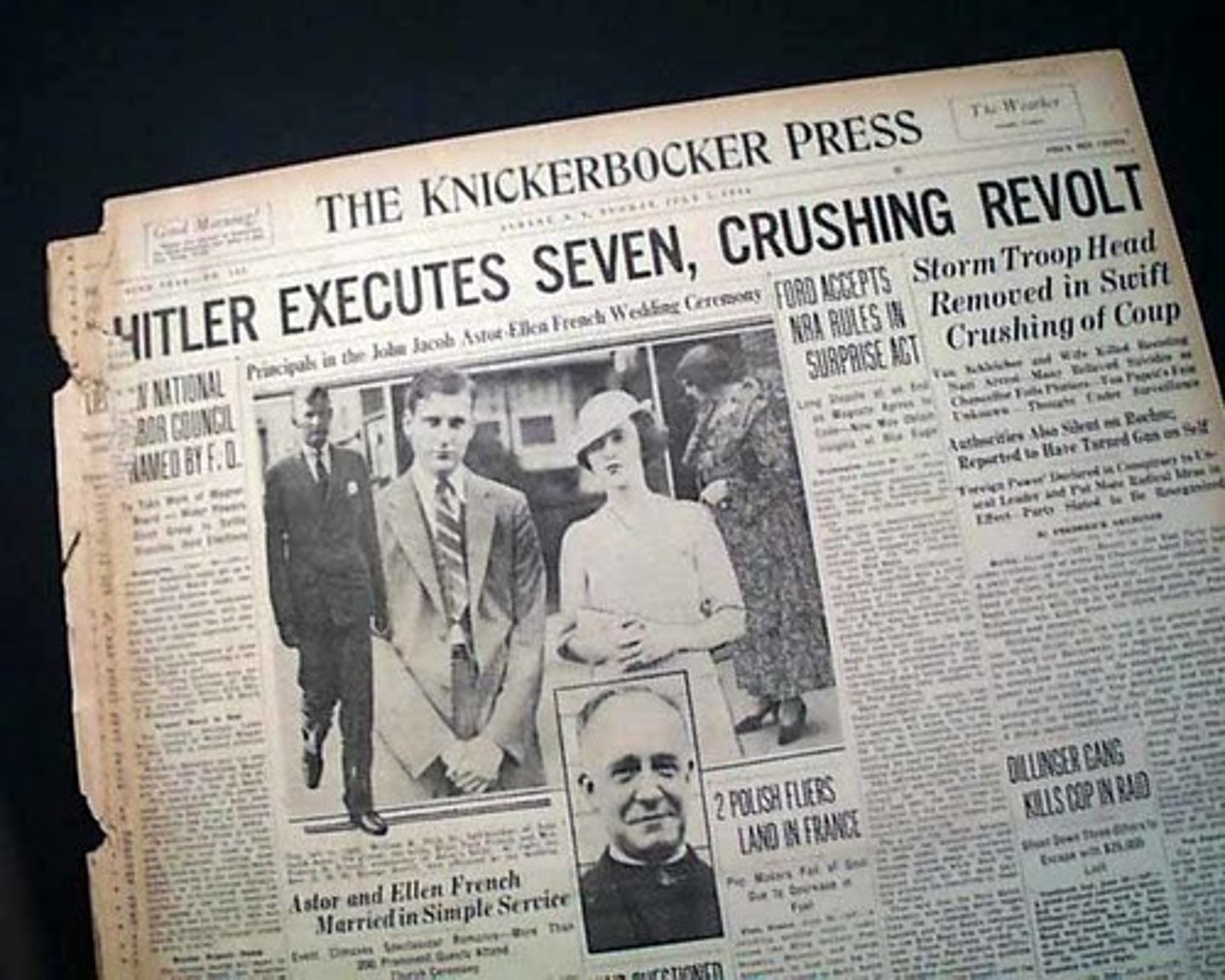
Death of Paul von Hindenburg (August 1934)
allowed Hitler to merge position of Chancellor and President into one- ultimate dictator called Fuhrer
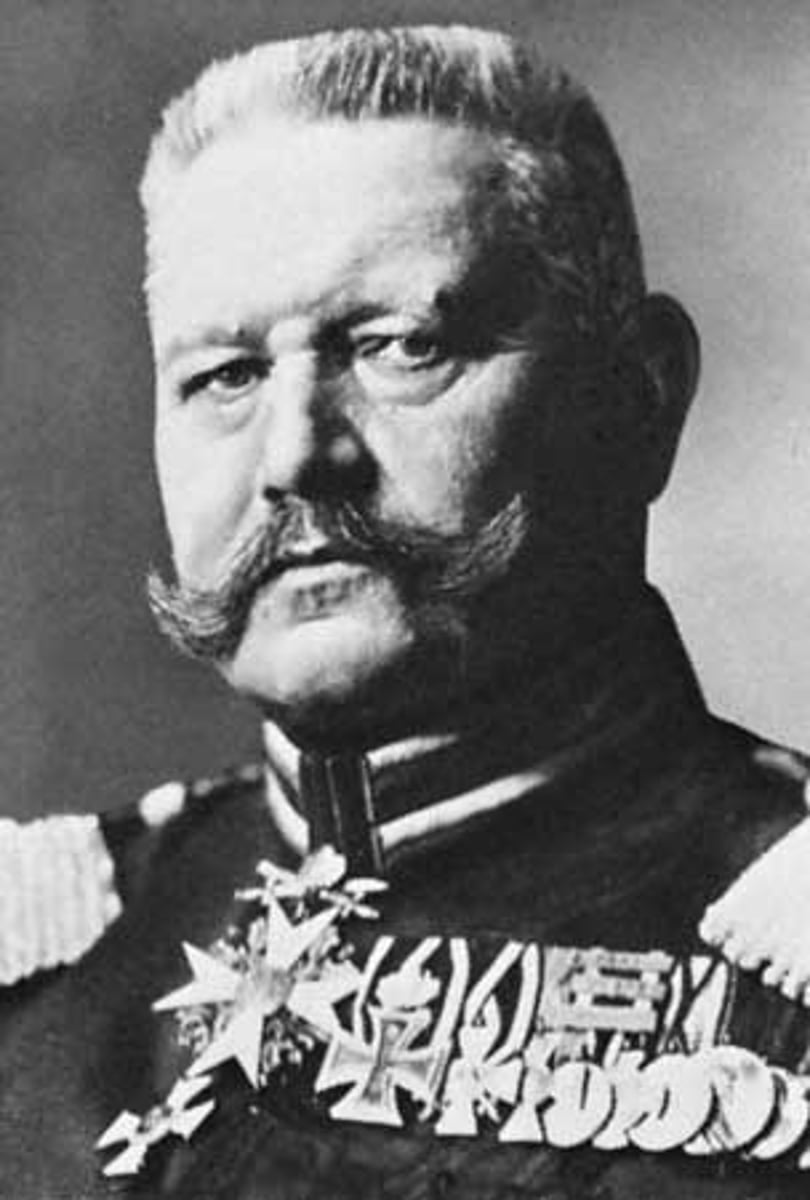
Shogun/Shogunate
Feudal Japanese military government centralized under the rule of a military leader.
Commodore Matthew Perry
A navy commander who, on July 8, 1853, became the first foreigner to break through the barriers that had kept Japan isolated from the rest of the world for 250 years.
Treaty of Kanagawa
An 1854 agreement between the United States and Japan, which opened two Japanese ports to U.S. ships and allowed the United States to set up an embassy in Japan.
Meiji Restoration
In 1868, a Japanese state-sposored industrialization and westernization effort that also involved the elimination of the Shogunate and giving power to the Japanese Emperor.
First Sino-Japanese War
1894-95 war in which Japan took Korea (a protectorate of China). After invading Manchuria and destroying the Chinese navy, the Treaty of Shimonoseki gave Japan its first two colonies: Taiwan and the Pescadores Island.
Triple Intervention
the combination of Russia, France, and Germany that pressured Japan to renounce the Liaodong peninsula in Manchuria in 1895
Russo-Japanese War
(1904-1905) War between Russia and Japan over imperial possessions. Japan emerges victorious.
Battle of Tsushima
In May 1905, the Japanese's navy stunned the world with the complete destruction of the Russian Baltic fleet.
Manchuria
A northeastern province in China, desired by Japan because of its size, natural resources, and location between Japan and the Soviet Union.
Manchukuo
In 1932 Japan established this puppet state in their conquered territories of Manchuria. In 1933 the League of Nations reprimanded Japan, and so the nation withdrew from the League.
Twenty-One Demands
list of demands Japan gave to China in 1915 that would have made China a protectorate of Japan. Criticism by the U.S. and U.K. led Japan to alter these demands.
Shidehara Kijuro
Japanese foreign minister in the 1920s; promoted peaceful internationalism
Anglo-Japanese Alliance
An agreement between the U.K. and Japan that was Japan's first military alliance with a Western nation.
Washington Treaty System
3 different treaties that agreed to prevent an arms race by limiting naval construction. Criticized by Japanese nationalists as an "iron ring" constricting Japan's ascension.
Four Power Treaty
1921 treaty between the US, Great Britain, France, and Japan to maintain the status quo in the South Pacific, that no countries could seek further territorial gain.
Five Power Treaty
1922 Committed the US, Britain, Japan, France, and Italy to restricting construction of new battleship class ships.
Nine-Power Treaty
1922 treaty that was essentially a reinvention of the Open Door Policy. All members to allow equal and fair trading rights with China. Signed by (9) US, Japan, China, France, Great Britain, Italy, Belgium, Netherlands, and Portugal.
Taisho Democracy
The period beginning with the political agitation that ended the Russo-Japanese War in 1905 and ending with the fall of the Seiyukai party in 1932. During this period, the idea that the Prime Minister and most of the cabinet should be elected politicians from the various political parties began to take hold.
GMD (Guomindang)
The Chinese nationalist party that fought for Chinese independence from Western powers, as well as against the Chinese Communist Party (CCP)
Chinese Communist Party (CCP)
A communist party that fought for Chinese independence from Western Powers, as well as against the GMD. Led by Mao Zedong.
Jiang Jieshi
(1887-1975) Leader of the Guomindang, or Nationalist Party in China. Fought to keep China from becoming communist, and to resist the Japanese during World War II. He lost control of China in 1949, and fled to Taiwan where he setup a rival government. Also known as Chang Kai Shek.
Mao Zedong
(1893-1976) Leader of the Communist Party in China that overthrew Jiang Jieshi and the Nationalists. Established China as the People's Republic of China and ruled from 1949 until 1976.
Kwantung Army
The Japanese army posted in Manchuria to guard the South Manchurian Railway and other Japanese interests. It acted without authorization from the civil government, such as by assassinating the warlord Zhang Zuolin in 1928 and seizing Manchuria in 1931. When the Japanese government ordered them to withdraw, they refused.
Kodo-ha (Imperial Way)
A right-wing nationalist, militarist group in Japan that sought to elevate Japan as an imperial power in East Asia. They opposed efforts by the West to restrict Japanese growth.
Hamaguchi Yuko
Japanese politician and prime minister (1929-30) at the outset of the Great Depression. He promoted Japanese industrialization but opposed militarism. His policies were resented by the Imperial Way faction and was assassinated in Tokyo in 1930.
Mukden Incident
A "Chinese" attack on a Japanese railway near the city of Mukden (had actually been carried out by Japanese soldiers disguised as Chinese); used by the Kwantung Military as an excuse to seize Manchuria. 18 September 1931
Treaty of Tanggu
1933 treaty signed by Jiang Jieshi, leader of the GMD, ceding to Japanese control of Manchuria. Jieshi considered the Chinese Communists a greater threat than the Japanese.